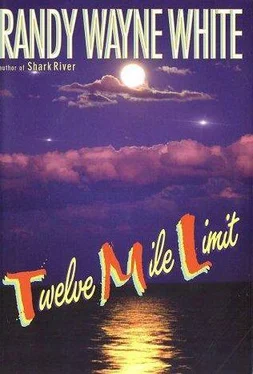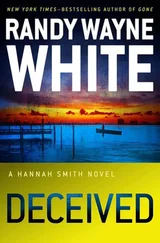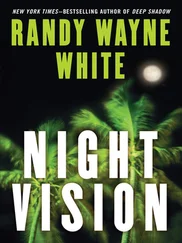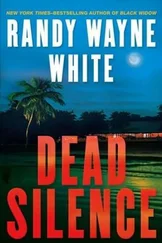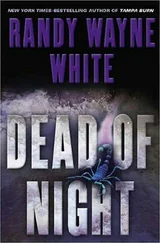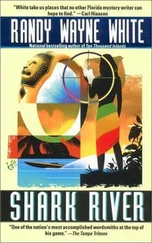Randy White - Twelve Mile Limit
Здесь есть возможность читать онлайн «Randy White - Twelve Mile Limit» весь текст электронной книги совершенно бесплатно (целиком полную версию без сокращений). В некоторых случаях можно слушать аудио, скачать через торрент в формате fb2 и присутствует краткое содержание. Жанр: Триллер, на английском языке. Описание произведения, (предисловие) а так же отзывы посетителей доступны на портале библиотеки ЛибКат.
- Название:Twelve Mile Limit
- Автор:
- Жанр:
- Год:неизвестен
- ISBN:нет данных
- Рейтинг книги:4 / 5. Голосов: 1
-
Избранное:Добавить в избранное
- Отзывы:
-
Ваша оценка:
- 80
- 1
- 2
- 3
- 4
- 5
Twelve Mile Limit: краткое содержание, описание и аннотация
Предлагаем к чтению аннотацию, описание, краткое содержание или предисловие (зависит от того, что написал сам автор книги «Twelve Mile Limit»). Если вы не нашли необходимую информацию о книге — напишите в комментариях, мы постараемся отыскать её.
Twelve Mile Limit — читать онлайн бесплатно полную книгу (весь текст) целиком
Ниже представлен текст книги, разбитый по страницам. Система сохранения места последней прочитанной страницы, позволяет с удобством читать онлайн бесплатно книгу «Twelve Mile Limit», без необходимости каждый раз заново искать на чём Вы остановились. Поставьте закладку, и сможете в любой момент перейти на страницу, на которой закончили чтение.
Интервал:
Закладка:
I was too busy trying to restock to mess with a camera, which was why I hadn’t thought to check the memory stick. But now I did. I opened the little viewing screen, pushed the on button, and then touched rewind.
As the little machine whirred, I heard the girl say from the breezeway, “A package arrived for you today. The box was torn a little, so I could see inside. It’s some kind of small glass case, with like a little blackball inside.”
I looked up from the camera, peering over my glasses. Trying very hard to keep my tone breezy, disinterested, I said, “Oh? Probably some kind of specimen. You better let me open that one.” I wondered if it might be from Tyner. Had he somehow gotten my address?
I listened to her reply, “Okay, okay, I was just telling you, that’s all. Oh, and I took your advice. I called the school counselor and told her I definitely planned to apply to college. Trouble is, I’m so far behind it’s going to be tough for me to catch up. It’s a lot harder than I thought it was going to be. So… well, I’ll see how it goes.”
Speaking slightly louder because she was outside, I said, “Just because it’s difficult doesn’t mean you can’t do it. If it’s harder than you thought, then work harder than you’ve been working. It’s that simple.”
“Oh sure, for someone like you. Maybe I just wasn’t raised that way.”
I didn’t care for her tone of voice. I stood, walked out the screen door, then into my little house where Shanay Money, dressed in baggy shorts and T-shirt, was busy cleaning my kitchen.
She glanced up broom in hand, when I entered, and I said to her, “Look, young lady, when you called me bawling, the night they hauled your father off to jail, you told me that you felt like you were trapped in your father’s life. Trapped by that kind of society. That you wanted out. Okay, so I agreed. We’ve got a deal. You’re out. You have our full support, Ransom’s and mine.”
Shanay said, “I know, I know. That sister of yours, man, she’s so great.”
“Yeah, and she thinks you’re a great roommate, enjoys having you around. You don’t have a mother? Ransom might make a pretty fair replacement. But there are a couple of things neither one of us is going to tolerate. Among them is you speaking badly of yourself. You have a fine intellect, every gift it takes to succeed. I’m not going to let you quit something before you’ve tried. So stop whining, stop looking for ways to fail. I won’t allow it. Any questions, Shanay?”
I liked the look that came into her face. It was a combination of gratitude, astonishment, and humor. “Damn it, Doc, when you’re right, you’re right. I was whining. Exactly what I was doing. You know what’s weird? Kind of secretly, I wanted you to tell me just exactly what you did. That I was looking for excuses to quit.”
Pleased, I said, “There you go. You are your own best barometer. Not me. Not anyone else. So when you talked to the counselor, did he happen to ask what you’re interested in majoring in?”
She said, “He did, matter of fact. I told him pre-law. I’ve always found it kind’a interesting. Plus all the experience I’ve had with cops coming to the house, I figure I already know more than most.”
I smiled, hardly trusting myself to speak. After a long pause, I said, “This state can always use another good lady attorney.”
“That’s what I figure,” she said. “Plus they do some good. Help people. Like you did for my old Davey dog. I’d like that.”
Janet’s line came to mind, though I did not speak it: Irony and love are the only things that separate us from the beasts.
I’m glad I didn’t. The irony I then witnessed would have made a mockery of her, of me-of everything, perhaps. Or maybe it was simply a confirmation of something that only Tomlinson would understand.
I returned to the lab, picked up the camera, pressed play, and a bright, digitized video began to run, everything colored as if shot through a green lens. For a while, there was nothing. Then the show began. I watched the little screen amused, then amazed, and then in a sort of chilling wonderment, as the largest of my Atlantic octopi used its tentacles to pry back the lid of its own tank.
Then, as if purposefully trying to be quiet, the octopus crawled slowly across the lab floor, moving like a Slinky, toward the tank in which I’d kept my stone crabs and calico crabs.
I whispered, “You brilliant little sneak!” as, still methodically, the animal climbed up the leg of the table, to the top of the crab tank. There it carefully and expertly augered the little vise open.
The audio was good. The metal vise clattered when it hit the floor.
Then the octopus pushed back the lid of the crab tank and slid inside to feed.
But that was not the most astonishing shot. The last few seconds of the video consisted of a sudden, unexpected close-up of suction cups, very powerful suction cups, clamping on to the lens of the camera.
They were from the tentacles of a second octopus.
The tentacles flexed, suction cups flattening themselves over the glass of the lens-huge, throbbing a furious red-and then the body of the animal slid over the camera, and suddenly I was staring into one bright, yellow eye. The eye had a black, vertical pupil set like stone into lucent gold. The eye telescoped toward me, then away, focusing, goat-like, staring into the lens as if studying the construction of the camera-or as if studying me.
Then the lens shattered.
I sat back, holding the camera away from me, as the screen slowly faded into darkness.
Author’s Postscript
M uch of what you’ve just read is not fiction, it is fact. This novel is based on an actual event as well as political realities that exist in North and South America. To the best of my ability, that event and those complicated political circumstances are described here accurately.
The event: On Friday, November 1994, at approximately 7 P.M., four Canadian SCUBA divers were set adrift off Marco Island, Florida, when their swamped boat sank to the bottom. They were fifty-two nautical miles offshore, anchored over the wreck of the Baja California.
On Sunday morning, thirty-eight hours later, a Coast Guard helicopter spotted one of the missing divers standing naked on a light tower, waving his wet suit to get their attention. The search for the remaining three-all of whom were wearing inflated buoyancy compensator devices (BCDs) and wet suits-resumed. For six days, the search continued. In the body of this novel, the results of that search are portrayed accurately in every small detail. The Coast Guard combed more than 23,000 square miles of water on a carefully coordinated grid search, using the latest high-tech radar and heat-sensitive vector systems, but found nothing. No trace of the remaining three divers was ever found. They vanished as if they’d been drawn into a vortex, then swept over the edge of the earth. David Madott, Omar Shearer, and Kent Munro, all twenty-five years of age, and each a resident of Mississauga, a suburb of Toronto, left behind family and friends who still grieve for them.
It was during the search that rumors began to circulate. As Marion Ford observes in this novel, blame and reason are contrivances to which we cling for comfort, a way of imposing order. All theories as to why the boat sank relied on sinister motives. There were no exceptions.
Watermen also tend to be territorial. No outsider, some believe, can know the currents and quirks of their area like they know them-including the Coast Guard. Some critics said the Coast Guard was searching too far to the south; others said the Coast Guard was searching too far west.
As a longtime fishing guide on nearby Sanibel Island, I was as interested, curious, and suspicious as anyone else. Much of what I heard made no sense; some of what I heard seemed impossible. For instance, I am an occasional long-distance open-water swimmer, and the distance covered by the lone swimmer in the time reported seemed unlikely. There were other troubling improbabilities as well.
Читать дальшеИнтервал:
Закладка:
Похожие книги на «Twelve Mile Limit»
Представляем Вашему вниманию похожие книги на «Twelve Mile Limit» списком для выбора. Мы отобрали схожую по названию и смыслу литературу в надежде предоставить читателям больше вариантов отыскать новые, интересные, ещё непрочитанные произведения.
Обсуждение, отзывы о книге «Twelve Mile Limit» и просто собственные мнения читателей. Оставьте ваши комментарии, напишите, что Вы думаете о произведении, его смысле или главных героях. Укажите что конкретно понравилось, а что нет, и почему Вы так считаете.
